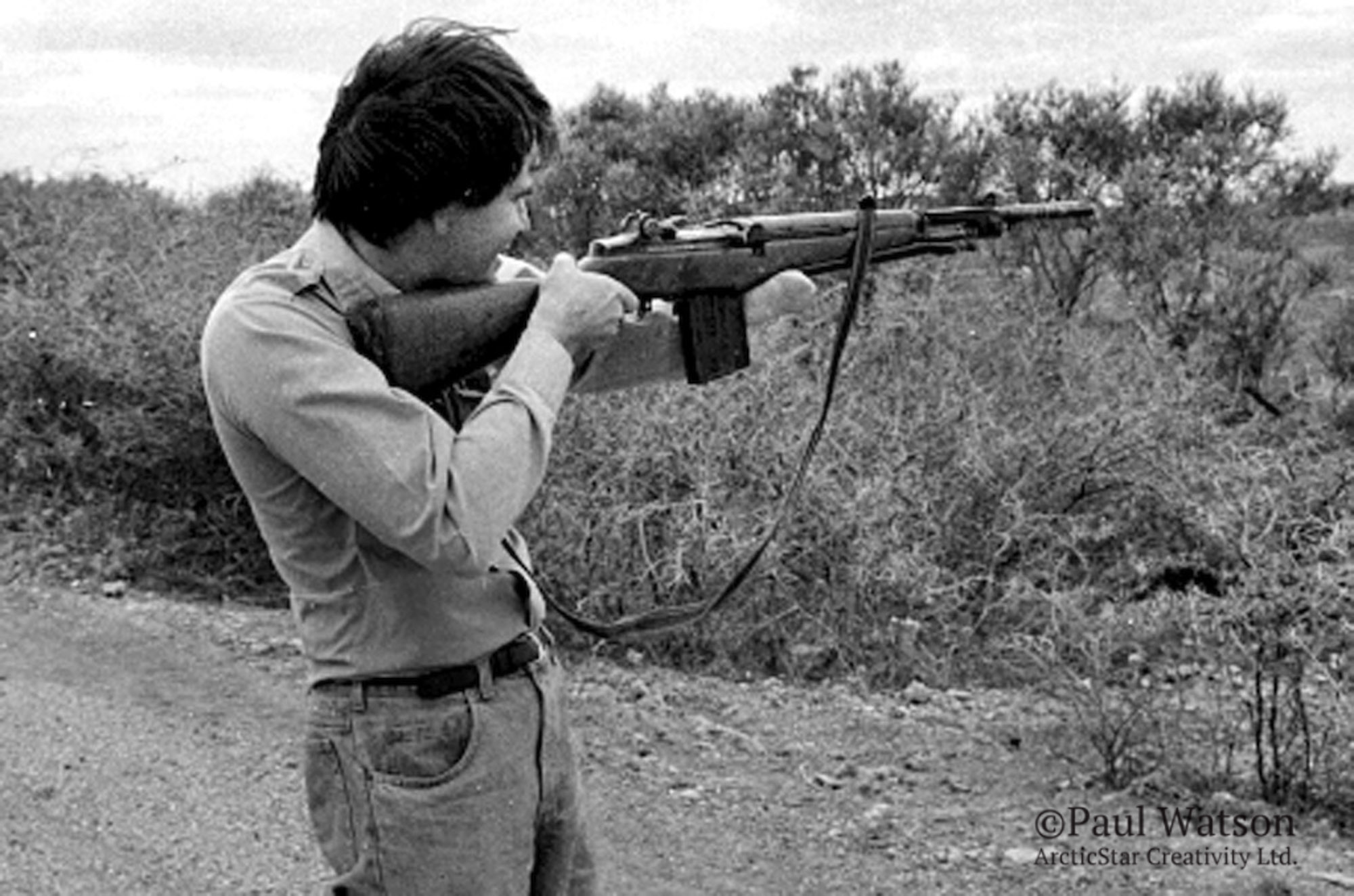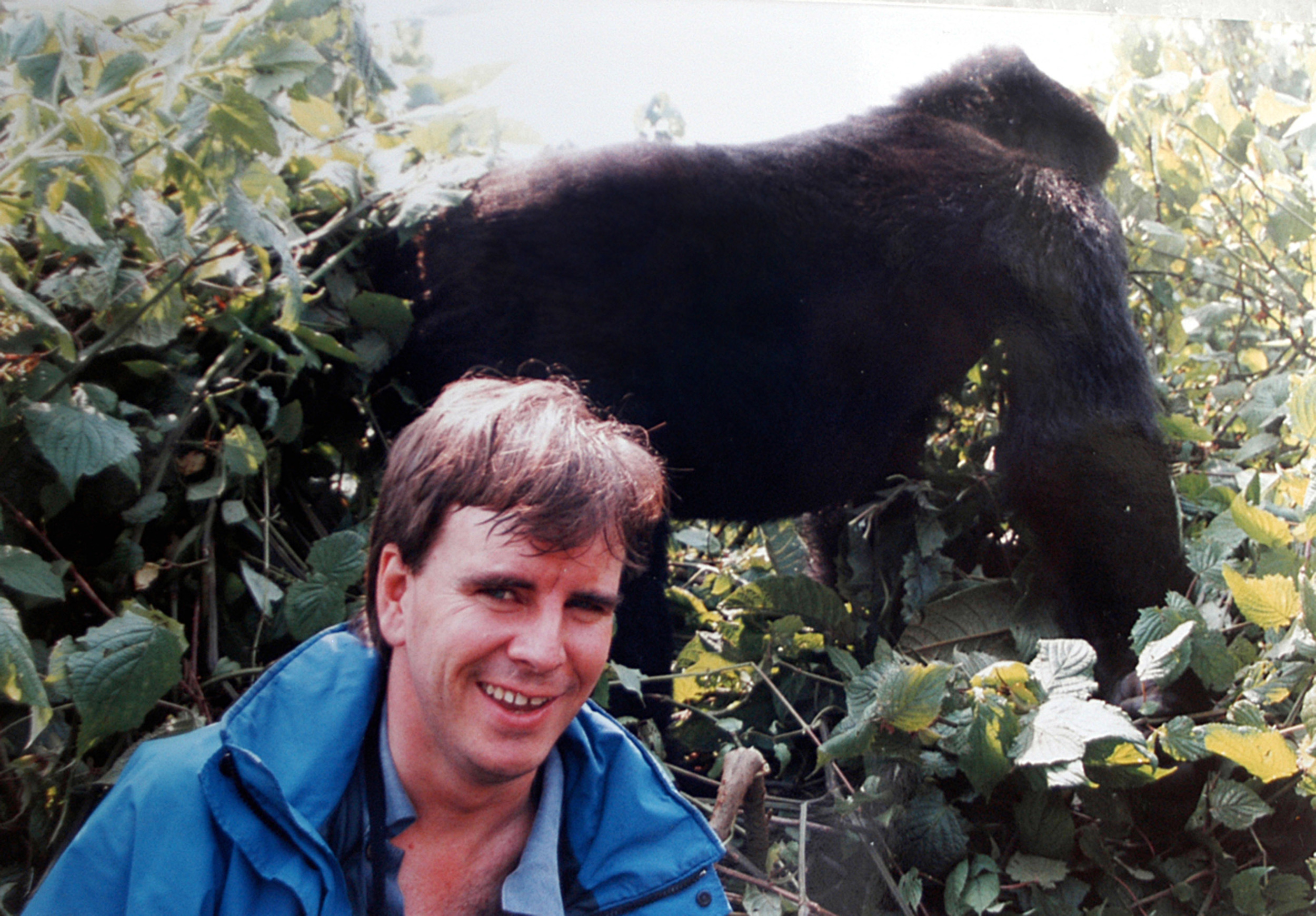About Paul Watson
How we got here
Until his resignation on July 7, 2015, Paul Watson covered the circumpolar Arctic for the Toronto Star. But he had a long and storied career as a war correspondent working for the Los Angeles Times and The Star on several continents, including Africa, Asia, the Middle East and Europe.
He graduated from Carleton University's School of Journalism and went overseas to work for two years as a teacher in rural Malawi, in Central Africa, with the World University Service of Canada. Then Paul attended Columbia University's School of International and Public Affairs in New York City, where he earned a full fellowship and a Master's degree with a Certificate in African Studies.
His latest honors include a National Magazine Award for investigative journalism and a Digital Publishing Award for Best Online-Only Long Feature.
He did it all, and still does, singlehandedly. No, really: He only has one hand. Which makes being a photojournalist an even bigger adventure.
You can read about his one-handed canoeing with future Prime Minister Stephen Harper in 1978, when they were classmates at Etobicoke's Richview Collegiate, in The Walrus magazine by pressing the first button below. The second takes you to a story on Richview notables, including Paul, Harper, and National League MVP first baseman Joey Votto:
Books
2007
WHERE WAR LIVES
Paul's best-selling memoir of war and struggles with Post Traumatic Stress Disorder and chronic depression was published in 2007 by McClelland and Stewart in Canada and Rodale in the United States.
It won the Drummer General's Award and was shortlisted for the 2008 Arthur Ellis Award for non-fiction writing.
Maclean's Magazine's Brian Bethune ranked it Third on his Top Ten Canadian Books of the Decade.
The Globe and Mail heralded it as one of the year's 100 best books.
Available for pre-order now. Coming in March 2017.
ICE GHOSTS: The Epic Hunt for the Lost Franklin Expedition
The spellbinding true story of the greatest mystery of Arctic exploration—and the rare mix of marine science and Inuit knowledge that led to the shipwrecks' discovery.
Ice Ghosts weaves together the epic story of the Lost Franklin Expedition of 1845—whose two ships and crew of 129 were lost to the Arctic ice—with the modern tale of the scientists, divers, and local Inuit behind the incredible discovery of the flagship’s wreck in 2014. Paul Watson, a Pulitzer Prize–winning journalist who was on the icebreaker that led the discovery expedition, tells a fast-paced historical adventure story: Sir John Franklin and the crew of the HMS Erebus and Terror setting off in search of the fabled Northwest Passage, the hazards they encountered and the reasons they were forced to abandon ship hundreds of miles from the nearest outpost of Western civilization, and the decades of searching that turned up only rumors of cannibalism and a few scattered papers and bones—until a combination of faith in Inuit lore and the latest science yielded a discovery for the ages.
2012
MAGNUM REVOLUTION
Based on interviews with some of photojournalism's greats at the iconic Magnum photo agency, Paul wrote the text for this compelling record of revolutions that changed our world.
Published by Prestel, with an introduction by The New Yorker's Jon Lee Anderson, the book includes gripping, first-hand accounts of uprisings photographed by legendary photojournalists such as Abbas, Thomas Dworzak, Steve McCurry and Larry Towell.
In page after page of iconic images, readers will recognize moments that changed the world, including the unarmed man stopping a column of Chinese tanks in Beijing, Tehran in 1979 and the Palestinian intifadeh.
Awards
& Honors
Pulitzer Prize - Spot news photography, 1994, for a photo of a Somali mob dragging the corpse of an American soldier through the streets of Mogadishu the previous year.
Canadian National Magazine Award - Awarded Silver in 2016 for investigative reporting on the political machinations behind the historic discovery of Sir John Franklin's flagship, HMS Erebus.
Newseum - Until it closed in late 2019, the popular Washington, D.C. museum devoted to journalism had a permanent display on Paul, including the camera he used to make the Pulitzer-winning image. A baboon then tossed it off a cliff at the Cape of Good Hope.
Daniel Pearl Award - The South Asian Journalist's association honored Paul in 2007 for his coverage of Afghanistan for the Los Angeles Times, including a perilous and revealing, 1,400-mile drive around the country on the Ring Road.
Hal Boyle Award - The Overseas Press Club of America gave its prestigious 2006 foreign reporting award to Paul for his courageous Afghanistan reporting.
Freedom of the Press Award - The U.S. National Press Club honored Paul in 2000 for reporting from Kosovo, where he documented Serbian and ethnic Albanian atrocities during 78-days of NATO bombing, which caused countless civilian casualties.
Times Mirror Journalist of the Year - The publishing giant, whose print and broadcasting operations included the Los Angeles Times, chose Paul as its top journalist in 2000.
National Headliner Award - On of the oldest honors in American journalism went to Paul in 2000 for his Kosovo war reporting.
George Polk Award - This 1999 honor, whose recipients include some of the most accomplished American war reporters, praised Paul's "searing first-hand accounts of the war in Kosovo made possible by his ingenuity, persistence and courage in resisting expulsion."
A summary account is here.
Robert Capa Gold Medal - The Overseas Press Club of America granted this award, in honor of a giant of photojournalism, to Paul for his 1993 Somalia image of a Somali mob dragging the body of an American soldier through the streets of Mogadishu.
Canadian National Newspaper Awards - Paul has won four NNA's for his reporting and photography, including ones for an investigation into Asia's child sex trade and a series on Somalia's anarchy.
Collaborations
Under Fire: Journalists in Combat
Featured in Martyn Burke's film focusing on war correspondents and combat photographers.
It won the Peabody Award, the top honor in U.S. broadcasting, and was shortlisted for an Academy Award in 2012.
Official site Under Fire: Journalists in Combat
Dan O'Brien: Playwright and Poet
The Body of An American
A review of Dan's multi-award winning play in Britain's The Guardian
The War Reporter
A review of Dan's award-winning poetry collection in Britain's The Guardian
Dan O'Brien's Website
Inspirations
On War
Albert Camus, The Notebooks
September 7, 1939
We used to wonder where war lived, what it was that made it so vile. And now we realize that we know where it lives, that it is inside ourselves. For most people, it’s the embarrassment, the need to make a choice, the choice which makes them go but feel remorse for not having been brave enough to stay at home, or which makes them stay at home but regret that they can’t share the way the others are going to die.
It’s there, that’s where it really is, and we were looking for in it the blue sky and the world’s indifference. It is in this terrible loneliness both of the combatants and of the noncombatants, in this humiliated despair that we all feel, in the baseness that we feel growing in our faces as the days go by. The reign of beasts has begun.
The hatred and the violence that you can already feel rising up in people. Nothing pure left in them. Nothing unique. They think together. You meet only beasts, bestial European faces. The world makes us feel sick, like this universal wave of cowardice, this mockery of courage, this parody of greatness, and this withering away of honor.
Affiliations
Member of the Writers Union of Canada
Member of the Honorary Advisory Board, Global Reporting Center, University of British Columbia
Former juror, Aboriginal Journalism Fellowship, The Canadian Journalism Foundation

















